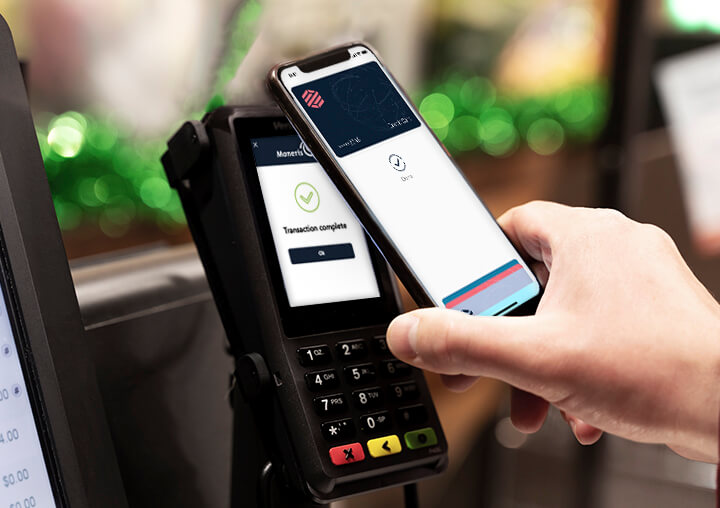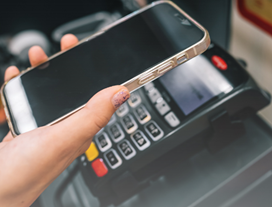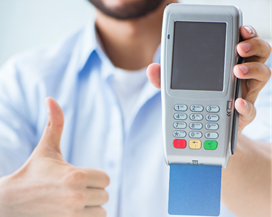
What is a Point-of-Sale System? Costs and Features Explained | Understanding POS Systems
A point-of-sale (POS) system is a tool that enables businesses to process sales, track inventory, manage payments and analyze customer transactions.

Accepting debit card payments is essential for small businesses looking to provide customers with a convenient and secure checkout experience. With fewer people carrying cash, companies that don’t accept debit cards risk losing sales. Setting up a debit card machine involves choosing a payment provider, opening a merchant account, selecting the right machine and completing installation and testing.
A payment provider processes debit card transactions and ensures funds are deposited into your business bank account. Choosing the right provider impacts transaction fees, security and integration with your existing systems.
Cost is one of the most important factors to consider. Providers charge different fees, including transaction fees, monthly service charges and equipment rental costs. Some may also require long-term contracts, while others offer flexible, pay-as-you-go pricing models. Understanding these costs ensures you select a provider that aligns with your budget.
Security should also be a priority. Providers should follow industry standards such as PCI DSS (Payment Card Industry Data Security Standard) and offer fraud prevention measures like encryption and tokenization. This protects customer data and reduces the risk of fraudulent transactions.
Look for good customer support. If a payment system fails, businesses need quick assistance to minimize disruptions. A provider with 24/7 customer support and a reputation for resolving issues efficiently can be invaluable.
A merchant account is necessary to process debit card transactions. It acts as a holding account where funds from debit card sales are temporarily stored before being transferred to your business bank account.
Businesses must apply to their chosen payment provider to open a merchant account. This typically requires providing business registration documents, banking details and identification for verification. Some providers may also request financial statements, particularly for businesses with high transaction volumes.
Once an application is submitted, the provider assesses the business’s financial history and risk level. This underwriting process ensures that the company can handle electronic transactions securely. After approval, the merchant account is linked to the business’s payment system. Providers may offer additional tools like real-time transaction monitoring and fraud detection to help companies manage their accounts effectively. Maintaining compliance with provider guidelines and keeping accurate records ensures smooth operation.
Choosing the right debit card machine depends on how and where your business processes payments. Different types of machines offer various features suited to other business models.
After selecting a debit card machine, setting it up correctly ensures smooth operation. Installation typically involves connecting the machine to a power source and network through Ethernet, Wi-Fi or mobile connection.
Once installed, the machine must be configured with the business’s merchant account details. This allows the machine to communicate securely with the payment provider and process transactions. Some providers offer remote configuration, while others may require manual account information input. Running test transactions verifies that payments are processed correctly, receipts print as expected and funds are deposited into the business’s account. If any issues arise, they can be addressed before the machine is fully operational. Staff training is also essential. Employees should know how to process payments, issue refunds and troubleshoot common errors.
Businesses should evaluate several factors when selecting a debit card machine to ensure they invest in the right solution.
Accepting debit card payments improves customer convenience and helps businesses increase sales. Essential steps include choosing a reliable payment provider, opening a merchant account, selecting the right machine and ensuring proper setup.
For businesses looking for a trusted payment processing solution, Moneris offers a range of debit card machines designed for different industries and business sizes. Explore our options to find the right payment solution for your business.

A point-of-sale (POS) system is a tool that enables businesses to process sales, track inventory, manage payments and analyze customer transactions.

Contactless payment for restaurants offers speed, security and convenience. Learn how tap-to-pay technology improves efficiency and enhances the dining experience.

Learn how to choose the best POS system for your small business. Explore essential features and tips for payment processing and inventory management.

Learn how to process payments online with this comprehensive guide for Canadian businesses. Explore secure, efficient payment processing solutions, and gain insights into integrating and optimizing payment systems to meet customer needs.